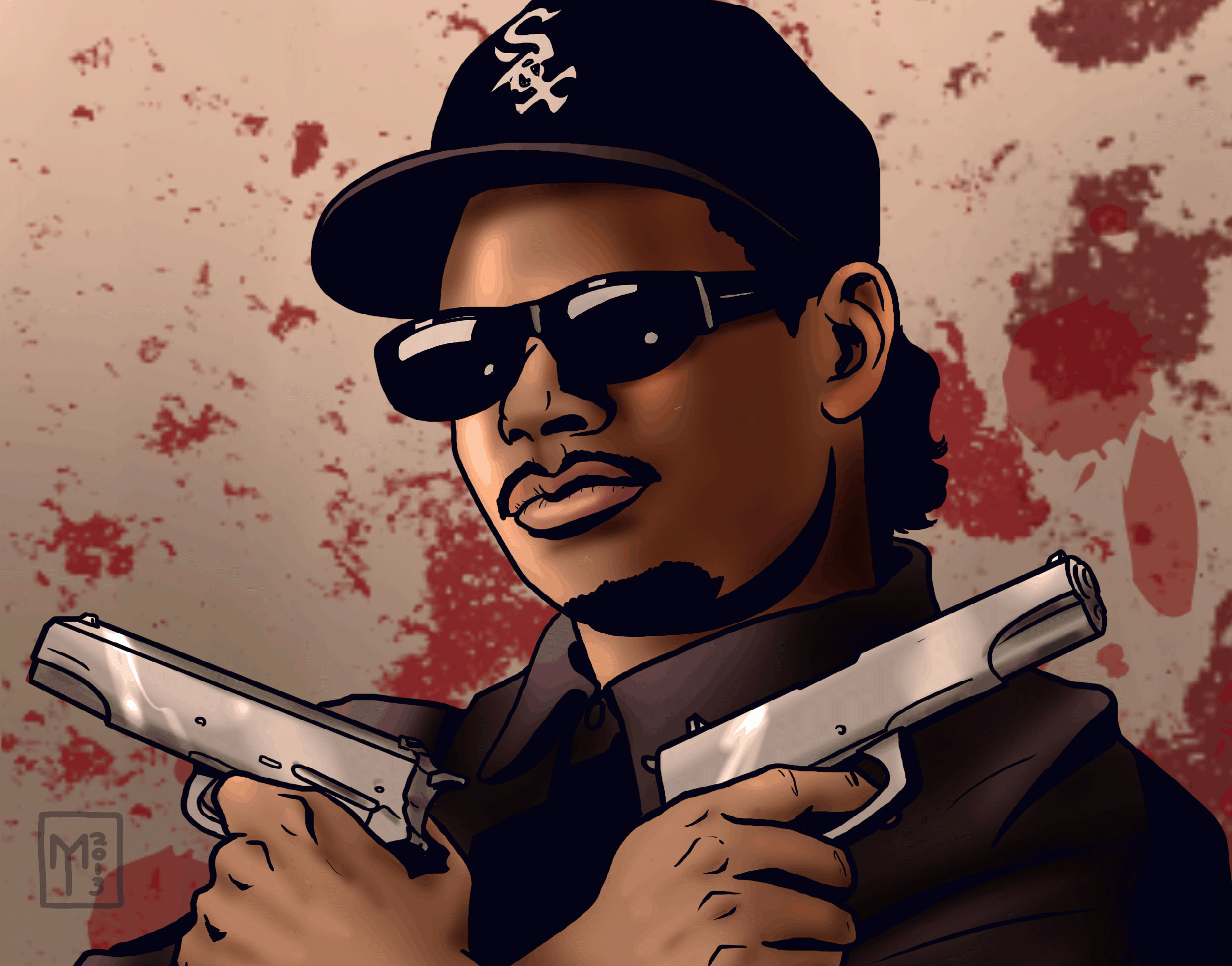
The Iceberg was released during a time when both the national prominence of hip-hop music and the efforts to censor it were on the rise. In this environment, he released The Iceberg/Freedom of Speech… Just Watch What You Say, an album fueled by his overwhelming desire to educate and speak his mind, coupled with his desire to offend his critics’ delicate sensibilities. Ice-T saw himself as an artist under attack on three separate fronts: the police department, parents, and “activist” organizations were becoming increasingly hell-bent on limiting access to rap music, and his music in particular. Ice-T had established that he was comfortable coming from either angle on his albums, especially with his second LP Power (1988). However, the rise of politically aware groups like Public Enemy and Boogie Down Productions demonstrated the importance of social commentary within hip-hop music. The prominence of artists like N.W.A showed that “Gangsta Rap” was as strong as ever.

But something tells me Oddisee won’t really care-there’s much more to come.Happy 30th Anniversary to Ice-T’s third studio album The Iceberg/Freedom of Speech… Just Watch What You Say!, originally released October 10, 1989.Īs the 1980s drew to a close, Tracy “Ice-T” Marrow seemed to sense that the landscape was changing. As a result this record will very likely fall under the radar and be overlooked. Oddisee has been prolific even over the last few months. Oddisee’s lyrics will rarely be understood on first listen, and they reveal staggering wit and poignancy on each subsequent listen. Indeed, the entire album can be put on repeat and just played over and over like some kind of slow-release medicine. The break carries an impossible swagger and is easily the first candidate for repeat play. The diamond at the center of it all is “NNGE” featuring Toine on one of the albums only guest appearances. Track after track, The Iceberg keeps going deeper, introducing new break styles, new and important commentary. When it cuts out, it’s replaced by vocal parts and synth arpeggios, which give it a depth and complexity that makes it hard to believe you’re only midway through the album. The effect is enhanced by a slow, rolling breakbeat which comes in strong after a few phrases. “You Grew Up” is a commentary on how a white childhood friend began hating immigrants. The wonderfully melancholic “Hold it Back”, for example, comes off like a ballad about speaking freely on thoughts packed so tightly they reveal valuable wisdom once you peel back the layers (“ Every time we restart it/ We’re gonna end up pushing the demons deeper in the closet”). Each is dressed up in just enough pop music sensibility to ensure repeatability.
#ICEBERG GANGSTA RAP SERIES#
He makes up for this with an incredibly informed and diverse series of topics and production styles ranging from human relationships to the current political climate.

Rapping over a more minimalist beat, Oddisee could run the risk of sounding a little monotonous, at least in tone. It’s possible this is some sort of compensation for a rap style that’s fairly consistent. One of the greatest things about the album is the sheer diversity.
#ICEBERG GANGSTA RAP FULL#
Somewhere a funky break began and Oddisee’s rapidfire style is inviting you over a full live ensemble, “ Let’s get into it!” Despite getting a little more abstract, “Things” shows the same production prowess in opening on patterns that don’t seem particularly inviting before finally building to a beautifully produced funk groove full of organic instruments and a soulful hook. Jazz night has begun in full swing and the place is suddenly packed. “Digging Deep” is the perfect introduction to the record. Easy and understated, propelled by snapping fingers and horns that sound more tuned for an end than a beginning, the mourning suggests lazy, dark speakeasies and poetry nights. The Iceberg is one of the few albums to where there’s a lot to agree about and we can do it with our heads nodding to the most weighty, jazzy beats put to recording in so far in 2017.Ĭonceptually, the first few bars are quite literally the tip of The Iceberg. Far from being just rapping about social issues, he aims for relevance on a human level that transcends the present-day identity politics.

Oddisee takes conscious rap much, much further on The Iceberg. Certainly both have their time and place and often simply appeal to different situations. It’s a label in which there’s an inherent pretense, but it typically means the artist eschews sexual conquest, genitalia, bravado and expensive purchases in favor of offering a perspective on social issues, politics and religion. The past two years have seen a rise in so-called “conscious rap,” a moniker that aims to differentiate it from its better-known and more popular yet nefarious cousin, gangsta rap.


 0 kommentar(er)
0 kommentar(er)
